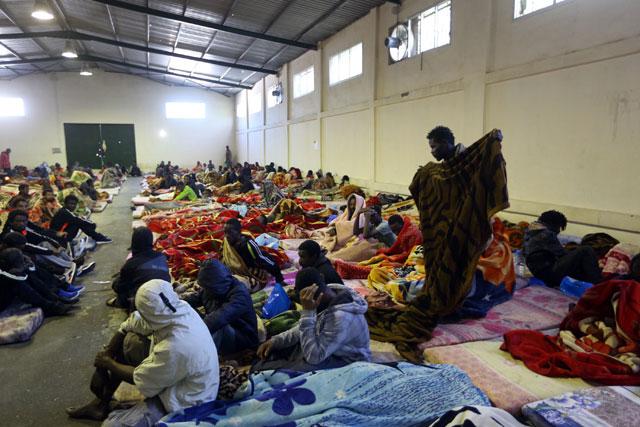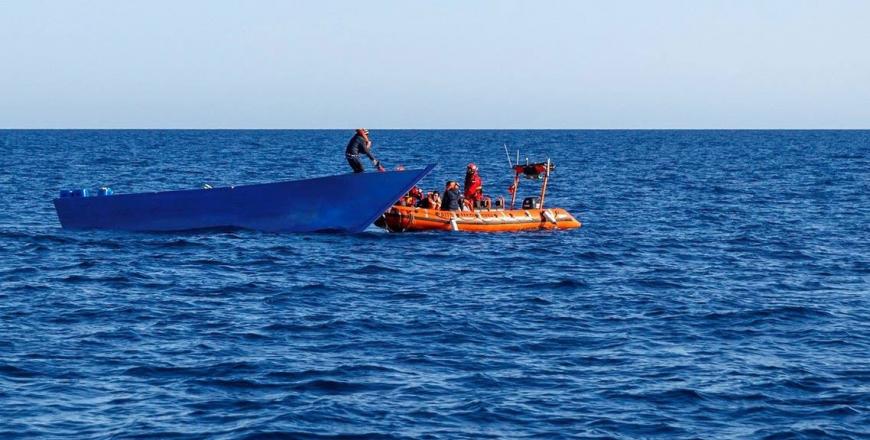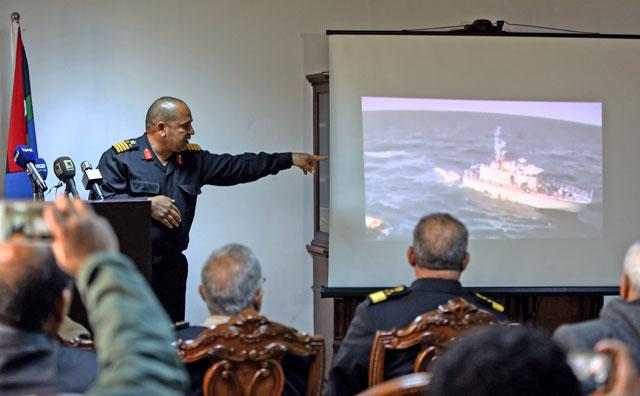You are here
Amnesty slams five years of EU-Libya migrant deal
By AFP - Jan 31,2022 - Last updated at Jan 31,2022
BRUSSELS — An EU-Libya deal under which migrants desperate to reach Europe are turned back and held in "hellish" conditions must be ended, Amnesty International said on Monday, the pact's fifth anniversary.
The rights organisation said that, over those five years, more than 82,000 people have been returned to Libya to face "arbitrary detention, torture, cruel and inhuman detention conditions, rape and sexual violence, extortion, forced labour and unlawful killings".
Amnesty and other critics slam the agreement as an outsourcing of the EU's border policing duties to Libya, resulting in a travesty for Europe's human rights record given the documented abuses.
The cooperation is a series of deals struck since 2016 which include EU funding and assistance of the Libyan coast guard, which intercepts migrants in boats to haul them back to land.
"These arrangements... have since enabled Libyan authorities to disembark people intercepted at sea in Libya, despite it being unlawful to return anyone to a place where they face serious abuse," Amnesty said in a statement.
The "impunity" that reigns in Libya was evinced by the appointment of a head of a detention centre where abuses had been documented to become chief of a government department tasked with fighting illegal migration, it added.
“It is high time to put an end to this callous approach, which shows a complete disregard for people’s lives and dignity. Instead, rescue efforts must ensure people are taken to a place of safety,” one of its migration and asylum researchers, Matteo de Bellis, said.
The European Commission argues that the Libyan coast guards “contribute to saving lives” and are meant to operate only in Libyan territorial waters. Brussels says it has sent “very firm messages” to Libya that it should close its migrant detention centres.
Libya became a major launching-off point for mostly African migrants trying to reach Europe in the wake of a NATO-backed uprising in 2011 in which dictator Muammar Qadhafi was toppled and killed.
The country has been gripped by violence and insecurity and two main factions are vying for control, a UN-backed government in Tripoli, and a military strongman, Khalifa Haftar, and his forces who rule the east.
A presidential election meant to have taken place in December 24 followed by legislative polls has been postponed.
Related Articles
BRUSSELS — European governments are complicit in grave human rights violations in Libya through their support for authorities there who ofte
TRIPOLI — Amnesty International on Thursday condemned the "horrific violations" being committed against migrants returned to Libya with the
GENEVA — The European Union's policy of helping the Libyan authorities intercept migrants in the Mediterranean and return them to "horrific"


















